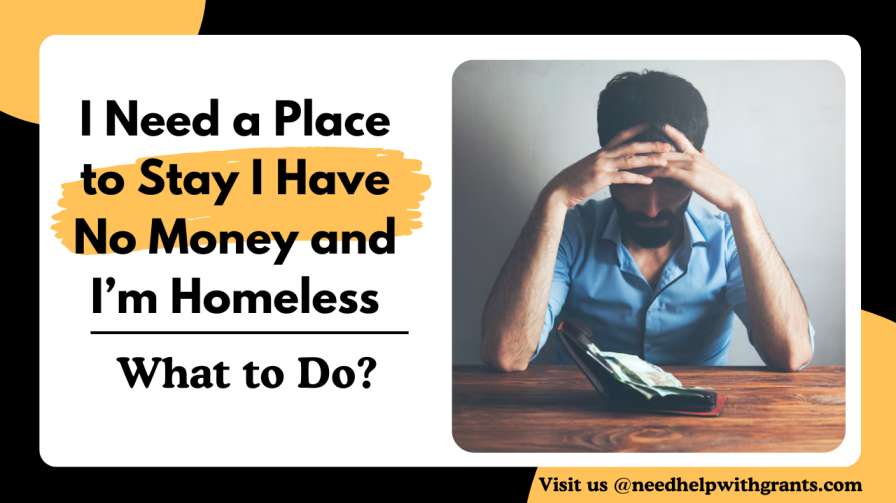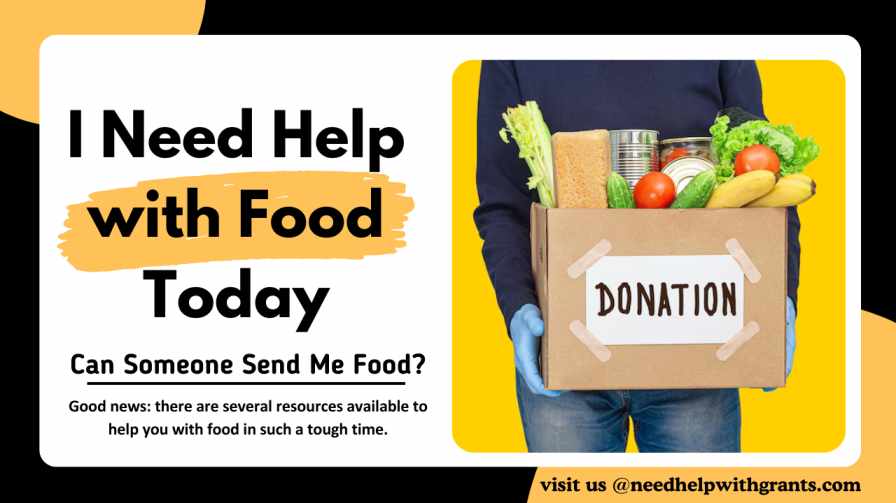Finding yourself homeless and without money can be incredibly scary. Whether you’ve fallen on hard times, left an unstable living situation, or are experiencing sudden homelessness, it’s important to know that there are steps and resources you can take to get back on your feet
Don’t be afraid! In this guide, I will share practical tips for finding free or inexpensive accommodation when you are strapped for cash. Let’s get involved!
Overview:
- According to census.gov Nearly 327,000 in the United States are living in Emergency and Transitional Shelters.
- You can get emergency housing, immediate hotel vouchers, and other assistance too when you need a place, have nowhere to go, and no money.
- You may stay at emergency shelters, transitional buildings, or public housing when you are homeless, and have no money.
“Among the sheltered population age 16 and over experiencing homelessness, nearly 15% were unemployed and an additional 61% were not in the labor force.” – https://www.census.gov/
Immediate Actions to Take If I Need a Place to Stay I Have No Money
When you find yourself without a place to stay or money, immediate actions are crucial to ensure your safety and well-being. Here’s what you can do right away:
1. Locate Emergency Shelters
Emergency shelters are designed to provide immediate relief to homeless people. They provide a safe place to sleep, eat, and sometimes provide additional services such as counseling or employment. Check out local accommodations online, visit a nearby church, or chat with local venues for information. Consider these emergency options when you’re down.
- 211 Hotline: Call 211 for advice and information about local resources.
- Hotels and accommodations: Some hotels and accommodations provide free accommodations for those in need.
- Camping and car life: If you have a car, consider living in it temporarily. Find safe parking spots and use public facilities.
2. Contact Local Services
Many communities have businesses dedicated to helping people in your situation. Contact local social services, non-profit organizations, or charities. Often they can offer assistance or direct you to organizations that can.
3. Reach out to friends and family
Even if it’s embarrassing, your friends and family are likely willing to help. They can offer you temporary accommodation or put you in touch with someone who can connect you. Be honest about your circumstances and needs.
4. Find Couchsurfing
Couchsurfing isn’t just a free place to crash; It’s an opportunity to connect with locals and see the destination through their eyes. Here’s how it works:
- Create a Profile: Set up a great profile on Couchsurfing. Focus on your interests, experiences, and what you can offer in return.
- Host and Be Hosted: Hosting others in your home builds your reputation in the Couchsurfing community. If you are traveling, it will be easier for the hosts to accept you if you have already helped.
- Safety first: Trust your intuition and read reviews. Identify well-informed hosts and communicate clearly.
5. Volunteering for Accommodation
Many hotels, farms, and eco-communities offer free accommodation in exchange for work. Websites such as Workaway, HelpX, and WWOOF (World Wide Opportunities on Organic Farms) provide access to these programs. Here’s what’s worth considering.
- Job exchange plan: Search for opportunities online. Jobs may include gardening, cleaning, or reception.
- Hostel Volunteering: Some hotels allow volunteers to stay for free in exchange for a few hours of work each day.
- Community Life: Find a community of your choice where you can offer support and live with like-minded individuals.
6. Free Lodging for Manual Labor
If you’re looking for a cost-effective way to vacation, you can choose free lodging for manual labor. Many travelers around the world are not bored with waterfalls and museums. As a result, people lose their homes, comfort zones, and a sense of purpose that comes with responsibility to others. You can find free accommodation if you need a nice place to relax. It is ideal for self-employed people or running a large project overseas. If you are a budget traveler, you can find a place to stay for a few nights or days.
7. House Sitting
Housekeeping involves looking after someone’s home while they are away in exchange for accommodation. Websites like TrustedHousesitters and MindMyHouse connect house sitters with homeowners looking for trusted house sitters for their properties.
8. Sleep Free to Care for Pets
You can ask someone if they can visit your pet at home while you are away. This seems like an easy and fun way to pass the time. Instead of staying in a hotel, you can stay in someone’s home for free. If you look after pets at home, they will provide you with almost free accommodation, which is a great way to save money. You will be able to interact and learn about the pet’s owners. You can learn about their life, what they do and other things if you want. You can also inform owners about the health of their pets.
9. Sleep in Airports
If you arrive in a new place with no money, you may be tempted to try your luck finding a hotel room. However, spending the night at the airport is your best chance. Airports are full of hotels, but the rooms are expensive. If you spend the night and need to sleep, you can do so at the airport.
10. Churches and Libraries
Some churches in cities like New York offer free overnight accommodations. Libraries are another option, but be respectful and quiet while inside. You can contact local churches or the Salvation Army centers to find emergency shelters.
- Also read: I Need a Place to Stay for a Month Near Me
How Do Find Shelters When I Need a Place To Stay?
If you need emergency shelter in the USA, there are several resources available to help you find a safe place to stay:
The Salvation Army Emergency Shelters:
The Salvation Army operates emergency shelters throughout the country. These shelters provide a clean and safe place for homeless people. Services may include case management, child development programs, housing assistance, and more.
To find a Salvation Army emergency shelter near you, visit their website or contact your local Salvation Army office.
HUD’s Find Shelter Tool:
The U.S. Department of Housing and Urban Development (HUD) offers a tool that provides information on housing, shelter, health care, and clothing resources in communities across the country. You can enter your location and search for available resources.
Local Homeless Assistance Lists:
HUD maintains local homeless assistance lists that include information on shelters and housing resources in each state. Check out HUD’s list of shelters in your area.
Domestic Violence and Abuse Shelters:
If you are seeking shelter specifically due to domestic violence or abuse, there are nearly 3,000 programs and shelters in the U.S. and Canada. You can search for these resources using the Domestic Shelters database.
Remember that each emergency shelter may have different eligibility requirements, rules, and services. Please contact your nearest shelter for specific requirements and programs available during your stay.
Places to Stay If You Face Homelessness
Here are some options and resources that can help:
1. Emergency Shelters
These are temporary shelters designed to provide immediate, temporary relief to the homeless.
Community homeless shelters: Many cities and towns have shelters that provide beds, food, and other services.
Domestic Violence Shelter: These shelters provide safety and support for individuals fleeing domestic abuse.
Youth shelters: These cater primarily to homeless teens and youth.
2. Transitional buildings
These are temporary shelters designed to help individuals and families transition from homelessness to permanent housing.
Housing Programs: Organizations such as the Salvation Army or local government programs often offer short-term housing options.
Subsidized Housing: Government programs provide affordable housing for low-income individuals and families.
3. Public Housing
Public housing is provided by the government for low-income individuals and families. You can apply through your local housing authority.
4. Government Assistance Programs
Several federal, state, and local programs can provide housing assistance:
- HUD (Housing and Urban Development): Offers various programs to help those facing homelessness.
- SNAP (Supplemental Nutrition Assistance Program): Provides food assistance, which can free up resources for housing.
- SSI/SSDI (Supplemental Security Income/Social Security Disability Insurance): Offers financial assistance to eligible individuals.
5. Hotlines and Helplines
Several hotlines can provide immediate assistance and resources:
National Homeless Hotline: 1-800-273-TALK (8255) – Provides mental health support and resources.
211: This is a confidential and free service that helps people across North America find the local resources they need.
6. Community Resources
Food Banks and Pantries: These can help with food needs, freeing up money for other expenses.
Drop-In Centers: Provide a safe place during the day, with access to services like showers, meals, and case management.
7. Online Resources and Apps
There are a variety of online resources and mobile apps that can help find shelter, food banks, and other services.
Homeless Shelter Directory: A directory of homeless shelters and service organizations throughout the United States.
Aunt Bertha: A search engine for local social services.
Homeless Resource Guide Apps: Most apps are available in stores, providing local listings.
8. Shelter or Housing Services
Contact the Continuum of Care (CoC) program in your area. CoCs are the “front door” to homeless services across the country. Information on accommodation, housing, and other facilities may be provided.
Search for “Homeless Hotline” or call 2-1-1 in your area. Trained staff are available 24/7 to help provide services such as shelter, healthcare, and food.
If nowhere is available, consider reaching out to providers such as your county Department of Human and Social Services, churches, nonprofit social services, libraries, or food pantries alongside various.
9. Finding Foods
Locate a food bank in your community using Feeding America’s food bank locator. You can also consider the Women, Infants, and Children (WIC) program, which offers supplemental nutritious foods and other services.
Need a Place to Stay for a Month for Free? – Do This
It is very difficult to find a place to stay for a month for free, though here are some tips listed. Check these.
✔️Reach Out to Churches or Charities: Many religious organizations and charities offer temporary housing to those in need. You can find places that offer free housing or connect you with resources for temporary housing.
✔️Offer House-Sitting Services: Sites like TrustedHousesitters and House Sitters America connect homeowners with people willing to care for their homes and pets while they’re away. In exchange, you will receive free accommodation for an agreed period.
✔️Join a Work-Exchange Program: Programs like Workaway or HelpX let you exchange work for free housing. You could be helping out with chores, farm work, or small projects while staying with a host.
✔️Check Couchsurfing for Short-Term Stays: While usually intended for shorter stays, Couchsurfing can be useful if you need a temporary place for free. Some hosts may be open to a month-long arrangement, especially if you communicate your situation.
✔️Use Social Media and Community Boards: Post your situation on local Facebook groups, Nextdoor, or Craigslist. Sometimes, families or individuals with extra rooms are willing to host someone for a month, especially if you’re willing to help out around the home.
✔️Volunteer for a Local Nonprofit: Some nonprofits provide housing for volunteers, particularly if you’re involved in a larger project. Check with organizations in your area to see if they offer volunteer accommodation.
Apply for Churches That Help With Rent Assistance Programs Near You.
Each option has different expectations, so be prepared to discuss your needs openly. These approaches can provide safe, temporary shelter while you arrange for longer-term housing.
Conclusion
Finding yourself without a place to stay and no money can be one of the most challenging situations you’ll ever face. Remember that you’re not alone, and there are organizations and services dedicated to helping individuals facing homelessness. Reach out to these resources to find the support you need.
FAQs
I’m homeless and have no income. I need a place to stay. What should I do?
You can contact your local government agencies, call 2-1-1 for immediate help, or visit their official website to receive any hotel or motel vouchers for a free temporary stay. Visit the site needhelpwithgrants.com for further details and info.
Where Should I Stay with No Money?
If you have no money, ask for help at local shelters, churches, or nonprofit organizations that provide temporary housing. Some cities offer emergency shelter programs and transitional housing.
Where can a person go if you have no where to go, no money, car, no job, and yet homeless? Are there any places that help?
If you’re homeless without resources, consider seeking help at local shelters, community centers, or organizations like Salvation Army, Catholic Charities, or United Way. Contact 211 for assistance in the U.S. Many cities have food banks, soup kitchens, and emergency shelters.
How do I get a free hotel room as a homeless person?
To get a free hotel room as a homeless person, check with local charities, nonprofits, or government programs like Housing First. Organizations like the Salvation Army, Catholic Charities, or United Way may provide temporary hotel vouchers. You can also contact 211 for local assistance and ask shelters if they offer emergency hotel stays.




Hello I’m looking to find a room close to my aerea Nw9 6Ra I need to move on Monday I don’t have money to pay it now but you can take from universal credit
At the end of month
Please let me know if you have something available on Monday I need to move